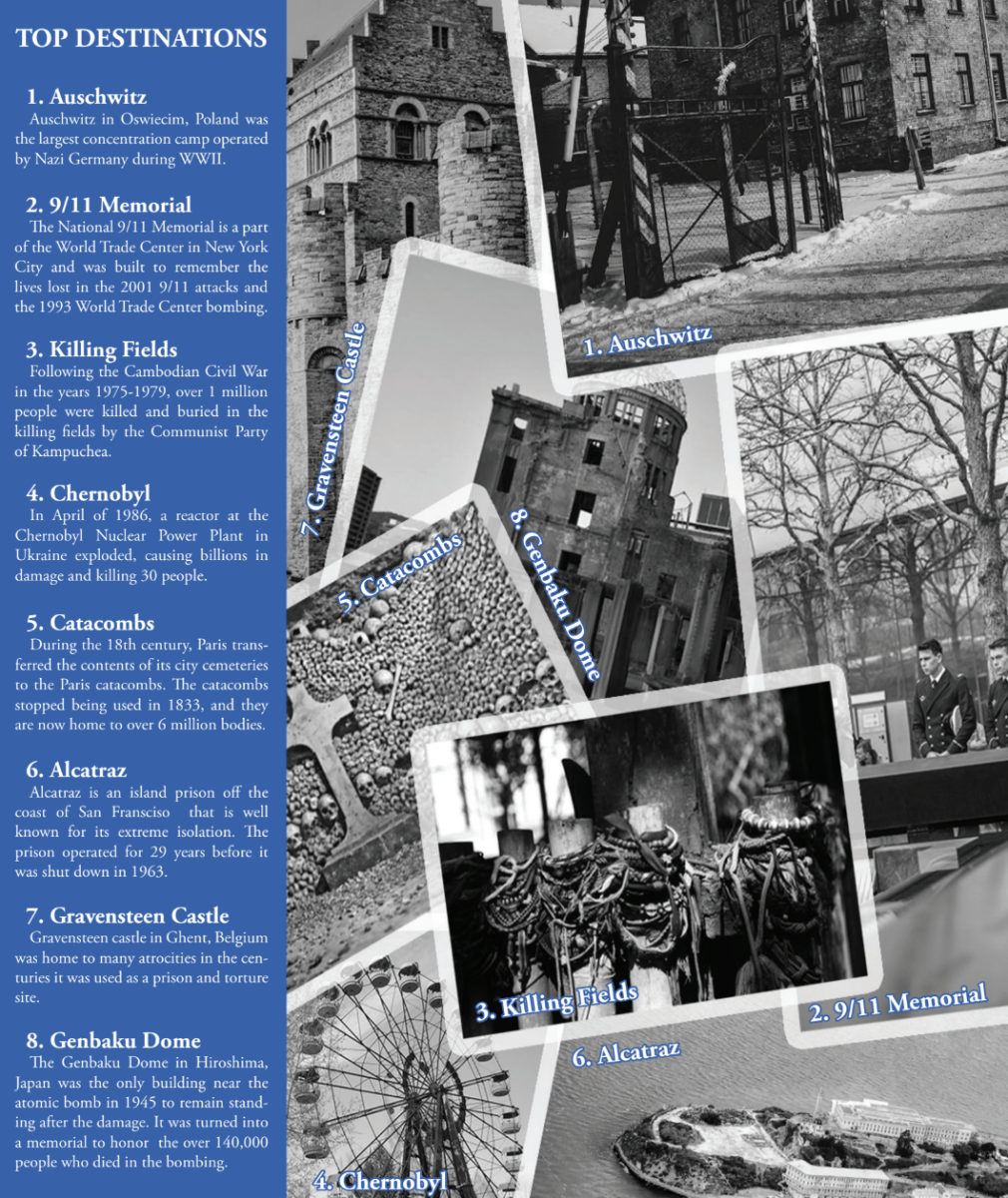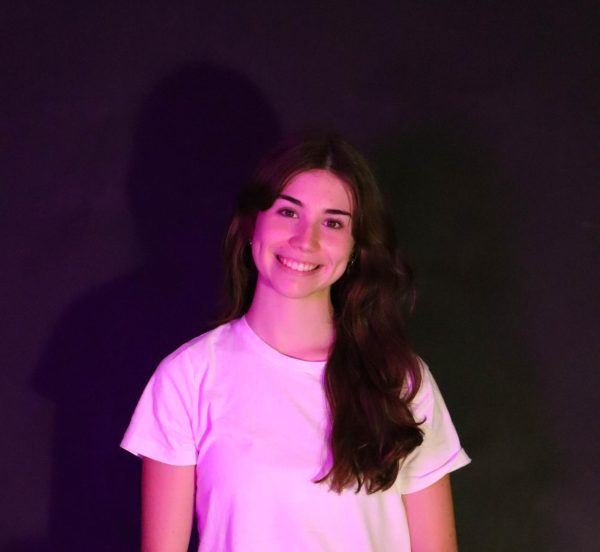Lou DeStefano’s arms were pressed firmly to his sides by the many bodies surrounding him in the crowded elevator. As they all shook from left to right, his mind wandered to the millions of prisoners who had had to endure train rides under similar conditions for not mere minutes like him, but up to days at a time
In 2018, Trinity Prep parent Lou DeStefano accompanied his son on a field trip to the D.C. Holocaust Museum, where they entered through an elevator meant to mimic the prisoners’ train rides to concentration camps. This was not the first time DeStefano had traveled to learn more about the Holocaust, as years earlier he toured concentration camps in Germany. DeStefano is one of many consumers in the growing market of dark tourism (tourism of places related to death and suffering), which is projected to hit U.S. $43.5 billion by 2031.
Associate professor and Chair of Business, Organizations, and Society at Franklin and Marshall College Jeffrey Podoshen explains that there is a wide variety of motivations that drive people to take these types of trips. They include education, commemoration, historical significance, religion, feelings of fear and curiosity about death.
DeStefano, specifically, was motivated by his desire to better understand what these prisoners went through and really place himself in their shoes.
“It was hard for me not to cry… You’re thinking ‘How could people do this to other human beings?’” DeStefano said. “It forces you to be empathetic [and] have sympathy for people that came before you.”
Similarly, in Germany, dark tourism has become all about education and commemoration. Most schools include eld trips to concentration camps as a part of their Holocaust curriculum to remind students that this part of their history cannot be forgotten.
“If there is anything Germany can share from its own experience, it is this: facing up to the grim truth of what took place is the only path to reconciliation,” the International Holocaust Remembrance Alliance said in a Euronews article. “A past that is not examined fully… will remain a burden for the future.”
For other dark tourists, the experience is less about education and more about satiating a curiosity about death.
“It’s a type of preparation for the unknown,” Podoshen said.
Podoshen explains that this incentive is especially more prevalent in younger generations, who are inundated with images of violence online. Unlike past generations where media was often edited or sanitized, people today are exposed to first-hand recordings of war on their Instagram feed.
“Violence has become commodified in our society,” Podoshen said. “It’s so common that it doesn’t have the same impact it once did. at’s one of the reasons why you see so much interest in dark tourism and consumption…related to death. It is because we are trying to find answers as to why this is all happening.”
Increases in violent media have played a huge role in the rapid growth of the dark tourism market. Younger demographics especially make up a large percentage of these travelers; in 2022 91% of Gen Z had engaged in a form of dark tourism. Unfortunately, as the industry has grown, dark tourism has become increasingly more commercialized, reducing the focus on these sites’ importance.
“There’s a certain loss of significance when things become commodified,” Podoshen said. “I would hate to see concentration camps or sites of massacres become just mere tourist traps where they sell food and T-shirts.”
Podoshen explained that in the United Kingdom Jack the Ripper tours have become a fun activity for tourists, instead of an experience used to emphasize the horrible nature of the crimes he committed, which has led to a lack of reflection over time.
“[Everything] has become so accelerated that we don’t have time for contemplation like we once did,”
Podoshen said. “ ere’s this lack of reflection and…really deep contemplation, and I don’t think that it’s helping us as humans.”
While there is a certain inevitability to commercialization when it comes to humanity, Podoshen believes if done correctly, dark tourism can bring back reflection without dampening the meaning of these historical sites.
“One of the things that I’ve always advocated for is that these sites of death need to be preserved as much as possible,” Podoshen said. “We need to not make it about selling stuff. We need to make it about preserving: preserving the history, preserving the heritage.”





